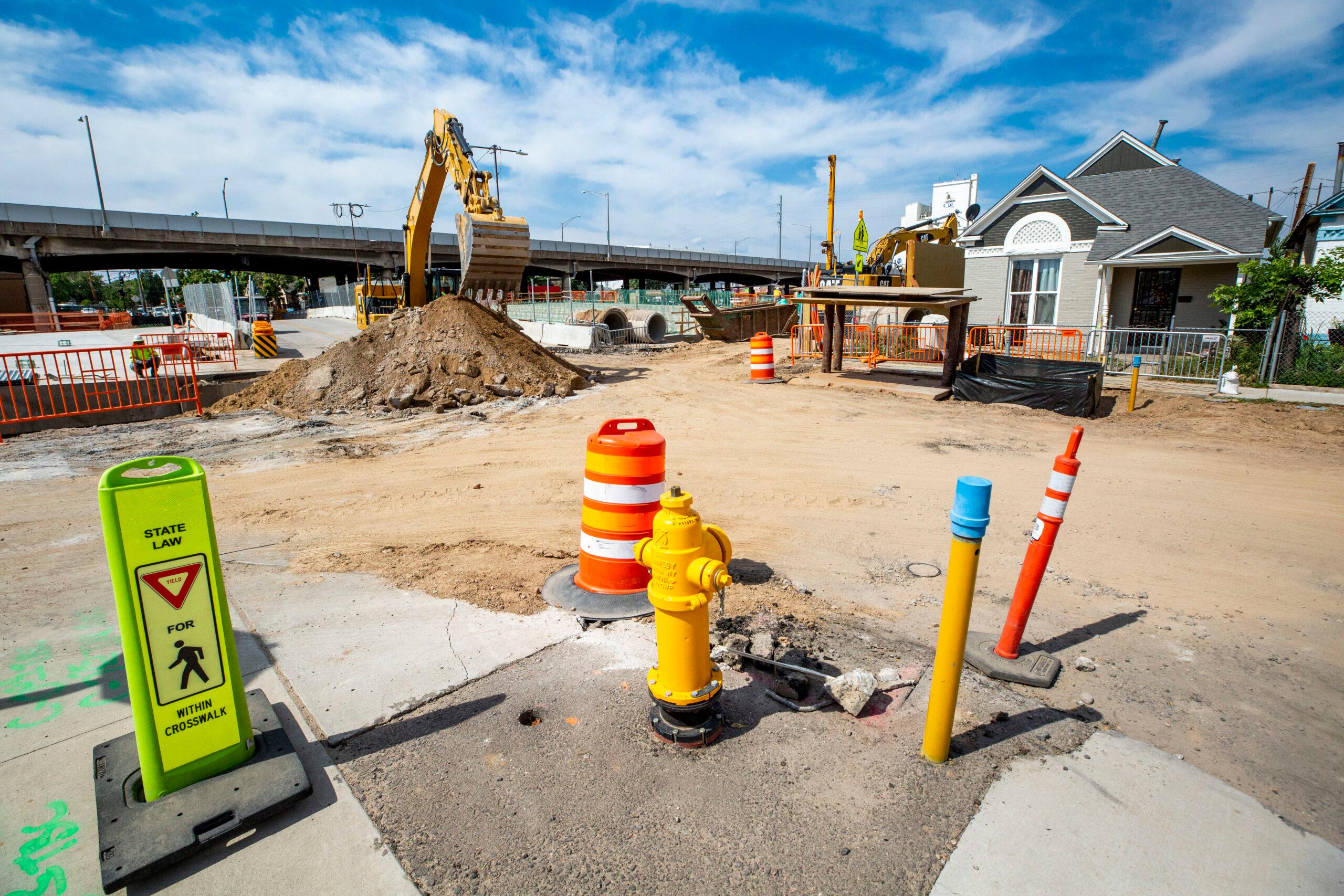Lydia Guerrero and her family moved within a block of the I-70 expansion project about a year ago. At first, all the noise and vibration from the massive construction project that reverberated in their home bothered them, she said. But the recent high school graduate and her family have learned to live with having the project as their neighbor.
"At this point we're just used to it," she said on a recent sunny afternoon.
Her little brothers aren't allowed to play outside the yard -- the trucks and equipment often left outside the construction fencing make things dangerous -- but she said they're getting along just fine.
A lot of neighbors we canvassed in the block of Elyria-Swansea closest to construction said they've also gotten used to the construction. For the last two years, Kiewit Meridiam Partners, the CDOT contractor working on the project, has been exempt from city noise rules, allowing construction workers to get as loud as an outdoor concert at any hour of the day. Denver's health department has required the company to monitor things closely and renew its variance once a year. A hearing for its third extension will take place August 13.
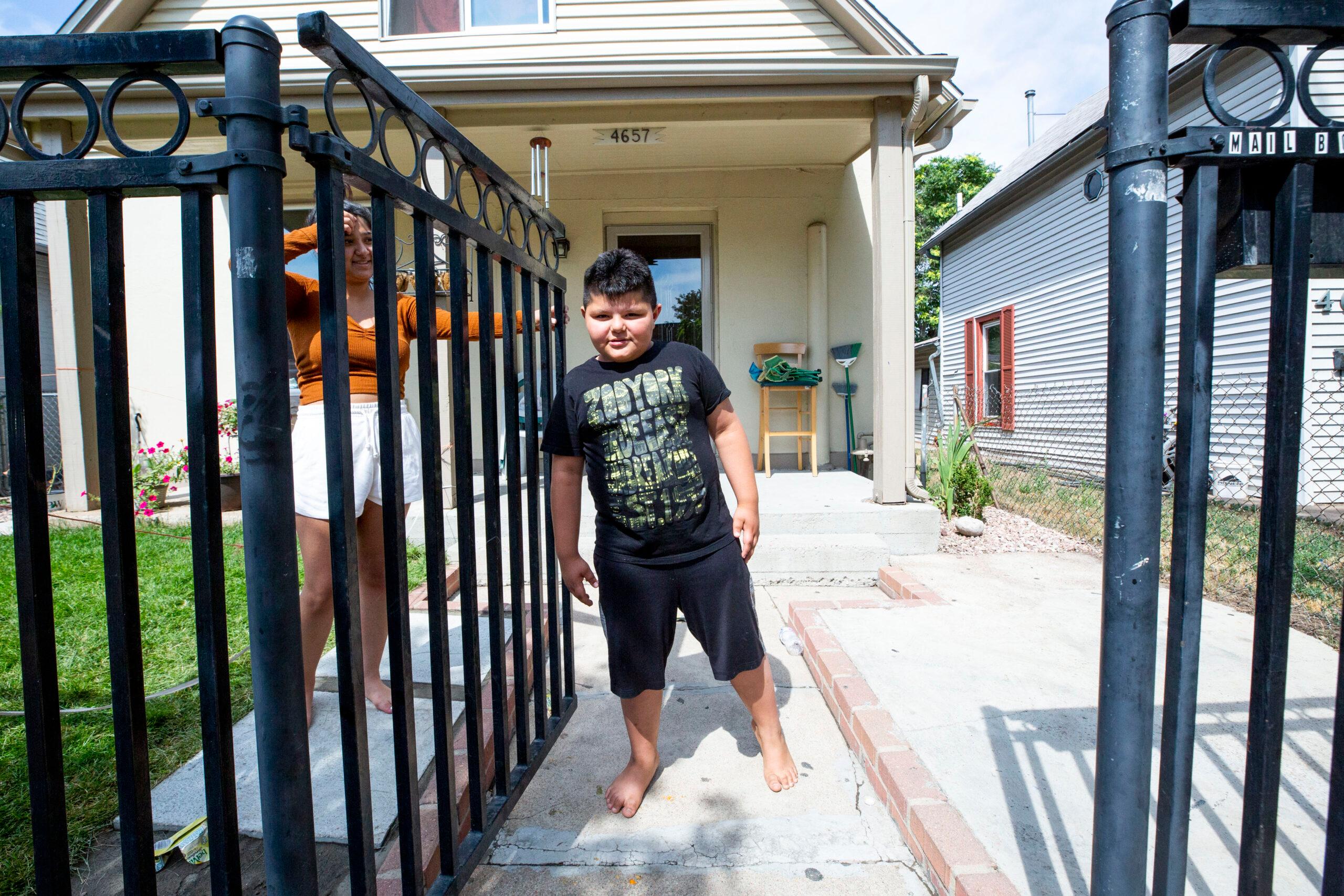
Juliana Pacheco last lived in her home for 28 years.
"For the most part they're not really that loud," she said. "You can hear it, but it's not to the point where its early in the morning and you're like, 'Ahhh, I'm trying to sleep!'"
Pacheco was among several residents who received new doors, windows and AC units from CDOT as the project ramped up. Those retrofits, she said, have helped mitigate the annoyance.
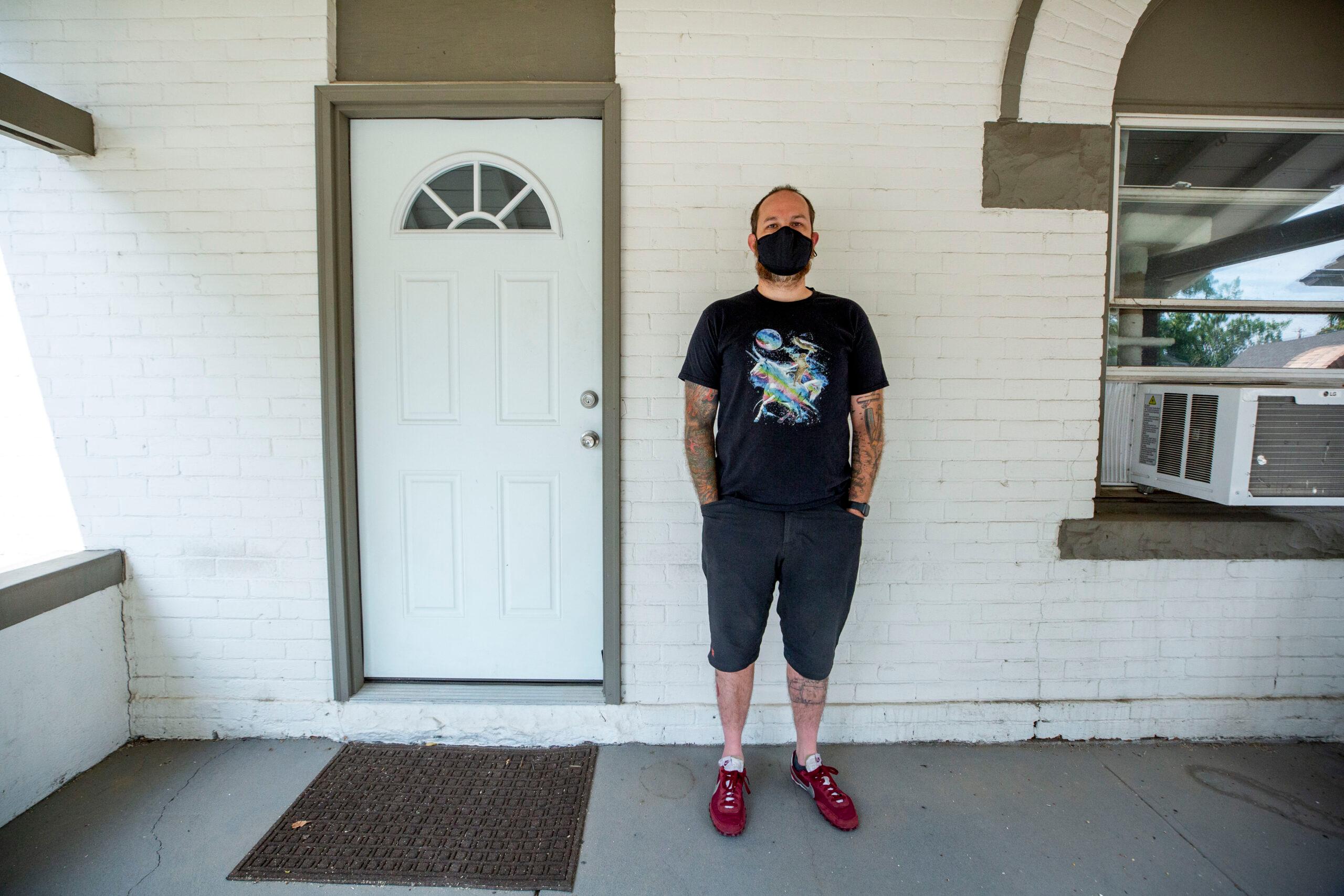
Guy Grigsby, who started working from home long before the pandemic, said he's also not been bothered. He was skeptical when Kiewit first asked for an exemption.
"It worried me, but after having to live with it over the last nine months or a year, it's not that big a deal, really," he told us. "If they can get it done quicker by doing that, then I'm all for it."
But nearly everyone we spoke to said they can feel the work nearby, even if the noise isn't a problem.
Sanjuana Romero, whose home is mere feet from the construction zone, said she feels like she's in a massage chair at all hours. Guerrero described it as a "light vibration."
Gerard Tomas, who began to work for Kiewit after the project began, said his century-old home has developed some cracks as a result.
"I've got splits in my wall," he said. "I already caught it, and I already told them about it, and they're going to repair it for me."
Matt Sanman, a Kiewit spokesperson, said the shaking is likely due to soil drilling as crews build the widened highway below grade. There will be more of that as teams eventually demolish the existing raised viaduct and then drill again to install the second half of a covering that will allow for a park over the highway.
"Although there are not currently regulations to monitor vibration, the team has been proactive in adjusting our protocol for receiving vibration complaints. We now treat vibratory concerns the same as noise, specifically during nighttime hours," Sanman said in an email. "If a complaint is received, we send a technician out within 30 minutes to observe the operation and determine if adjustments need to be made to minimize those impacts."
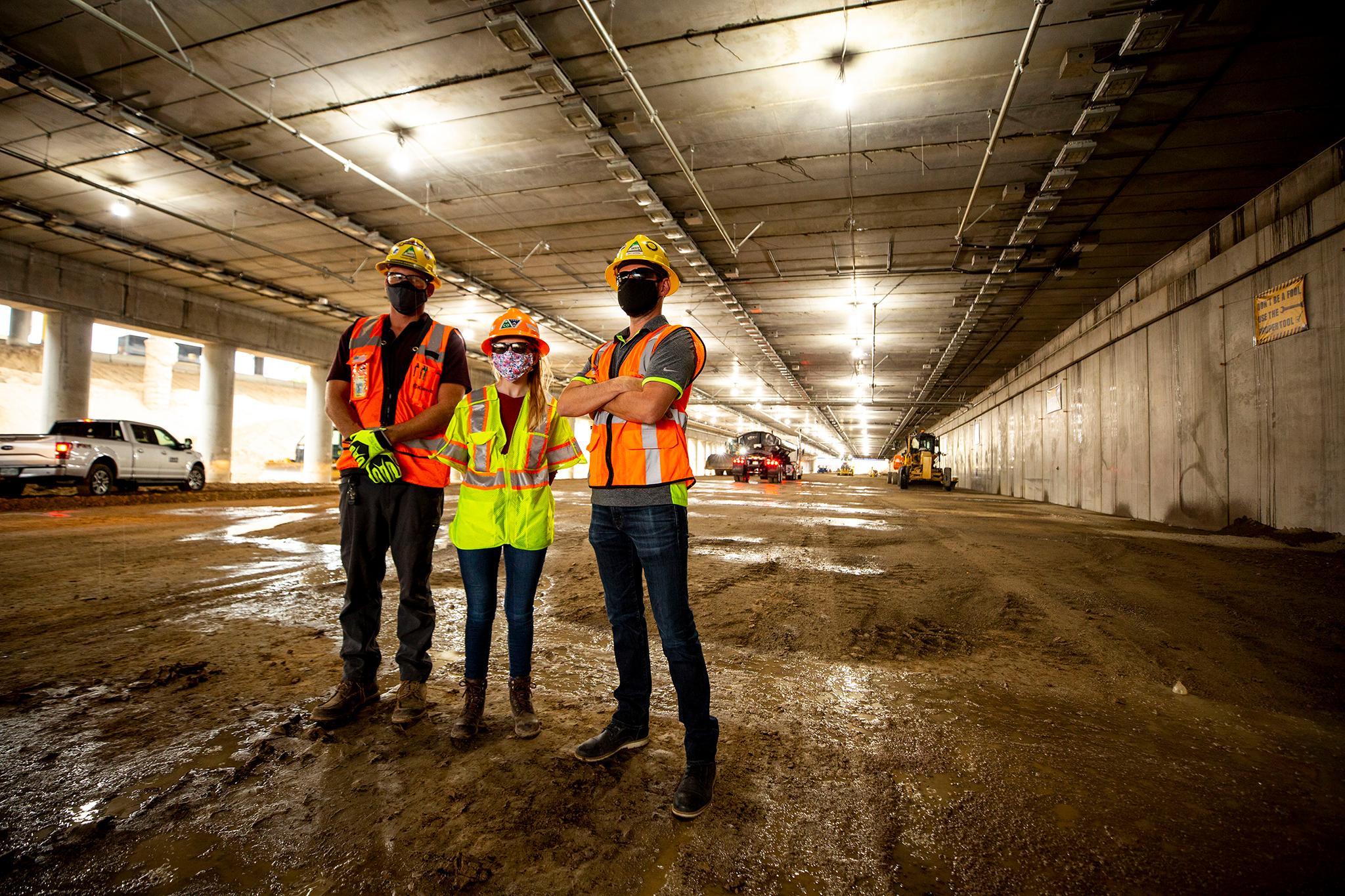
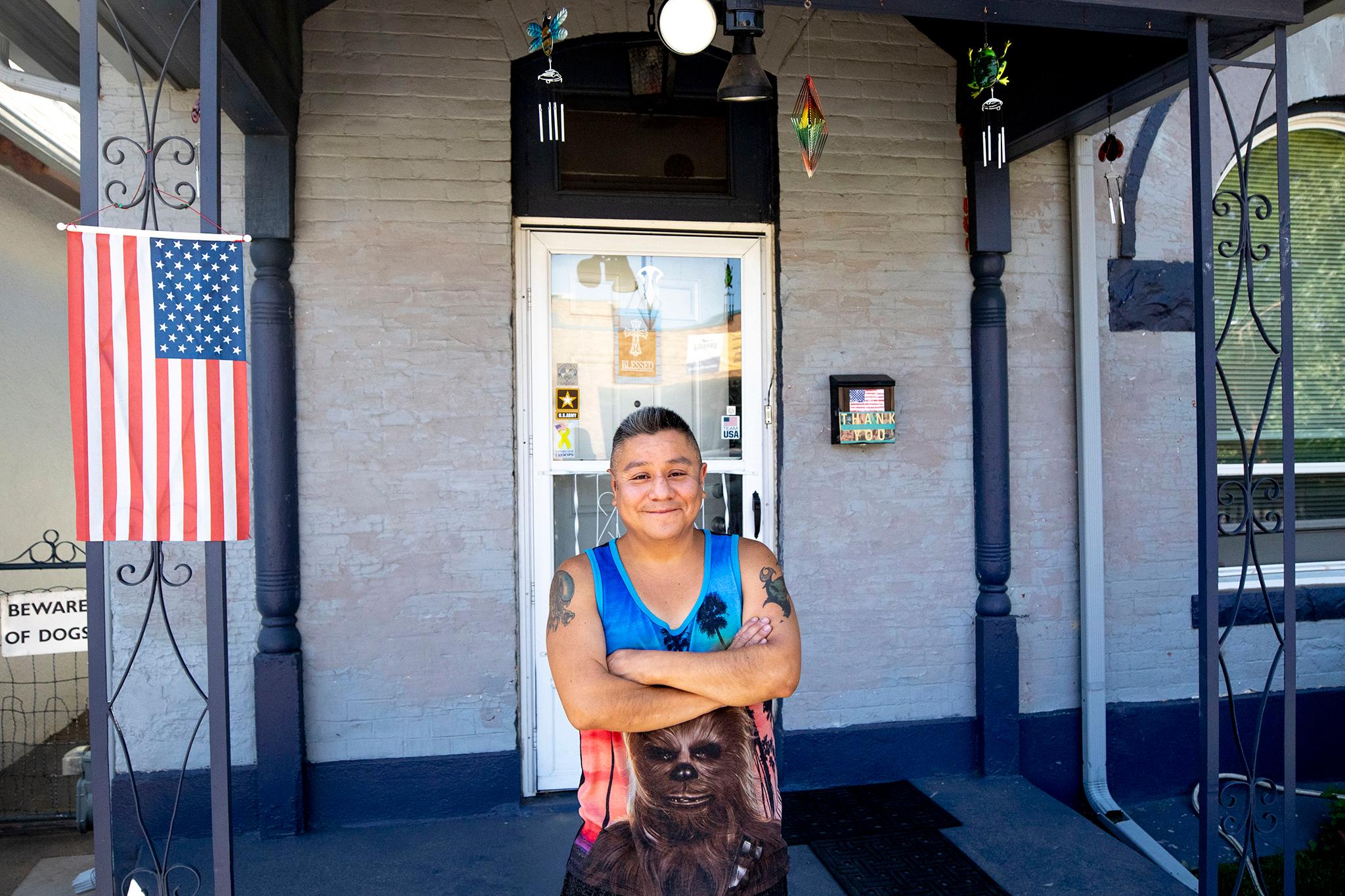
Tomas said noise and some shaking are just the cost of progress.
"You cant make progress without cracking a couple eggs, and you cant make progress without making a little noise," he said. "People need to understand that."
City Councilwoman Candi CdeBaca, who's long fought the project and now presides over Elyria-Swansea as its representative, told us she's not ready to take a public position on the August 13 variance request and will likely issue a statement after hearing from residents at the meeting.
Other neighbors are not excited that Kiewit may continue working at full speed.
Sanjuana Romero, who also described the vibrations as a constant massage chair, is one of them. Of everyone we spoke to, she lives closest to the construction.
She said her family has endured a lot since the project began. Before the digging, a number of her neighbors were forced to move when the city purchased their homes via imminent domain. Before they were demolished, Romero said squatters were living in the vacant residences. The neighborhood where she grew up suddenly felt unsafe.
"Our house got broken into. They took all of our electronics and stuff, our garage got broken into, our yard, our dog got stolen, our cars got broken into," she said.
The break-ins traumatized her three young children to the point that they refuse to sleep with air conditioners in the windows since "that's how they got in," Romero said.
The family truck, which sat at the end of the driveway right next to a construction entrance, is forever coated with dirt. Her husband, Alex, said he gave up trying to wash it.
Romero said the construction noise isn't always a problem. But the shaking has been getting to her.
"It vibrates the whole bed," she said. "You can hear it. The house moves. ... It gets to you."
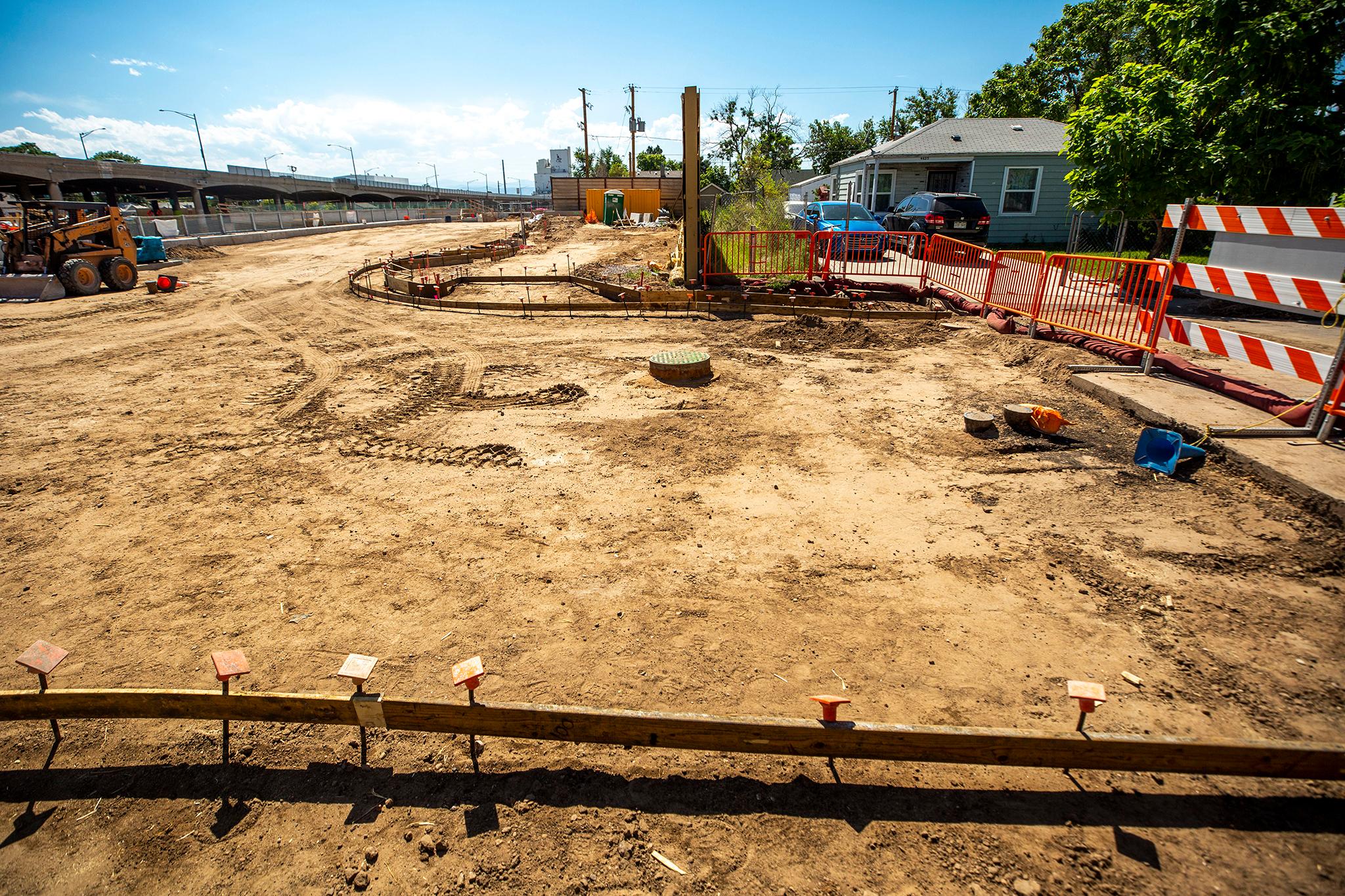
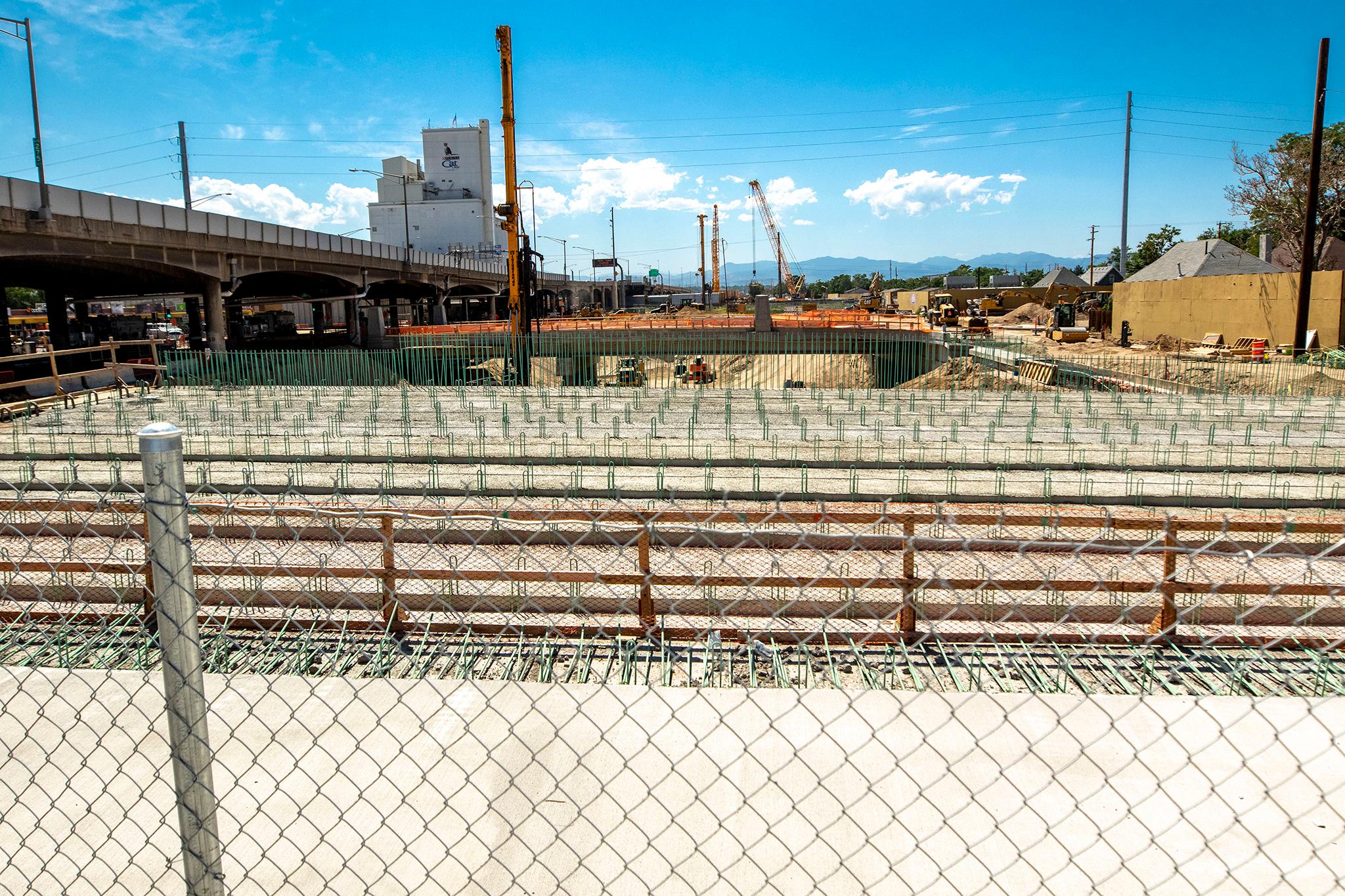
Overnight disruptions, plus some lasting trauma from the break-ins, has kept Romero from resting easy at night. She said she's developed chronic migraines since construction began. She even took a night-shift job doing custodial work to fill the time when she couldn't fall asleep.
"I might as well work night shifts," said the former stay-at-home mom. "I'm up."
Kiewit and CDOT track noise and vibration complaints that come in through a special hotline, Denver's 311 system and during listening sessions held regularly to collect community input.
According to documents CDOT gave Denverite through an open-records request, the agency has logged about 20 complaints since October 2017. Many of them were dismissed as unrelated to construction.
For example, one complaint from July 2017 reads: "Audio files recorded noises that were reported to be vehicle backfires in the area of I-70 and Clayton/Columbine ... Kiewit's vehicles are diesel powered and diesel's do not backfire. Therefore it is unlikely that this noise was caused by Kiewit vehicles/equipment. Complaint is unsubstantiated."
Records show the company has shut down equipment and investigated an issue after it arose. A backhoe was shut off in one instance.
During a June 2019 listening session, a woman complained about "noise, dust and local road closures," according to CDOT's records.
"I explained to her that it's best to document any dust and noise concerns she has and call while it's happening so we can have a team member investigate," the response reads.
Romero said she's complained a lot -- "They know me," she said -- but so far she's not sleeping any better. She said she plans to attend Kiewit's upcoming hearing to make sure the company knows her world still feels upside down since construction began.

